Ciborium Monument of St. John Lateran
Artist: Unknown
Date: 14th century
Classification: Ciborium
Dimensions: 32 square meters
Materials: Frescoes, Paint on walls
Adopted By: The Illinois Chapter
Description
HIGH PRIORITY PROJECT
The ciborium was built at the time of Pope Urban V (1362-1370) as part of the redevelopment plan of the papal basilica that he promoted. It is the work of the Sienese architect Giovanni di Stefano. The monument was intended to display the heads of Saints Peter and Paul, discovered by the pope himself in the Sancta Sanctorum. In addition to the frescoes in the panels above the four columns, dating from the years of Pope Alexander VI and from the school of Antoniazzo Romano, the interior of the ciborium contains valuable paintings by the Florentine Giovanni Balducci, datable to the late 1500s, depicting in the lunettes the Delivery of the Keys, the Conversion of Saul, the Crucifixion of St. Peter and the Beheading of St. Paul, and in the vault hovering Angels with the symbols of Saints Peter and Paul.
TOTAL COST: € 70.371,90 ($ 68,781.50)
Restoration Procedures
-
Consolidation of detached plasters
-
Cleaning: removal of the thick black layer and various repaintings
-
Filling of gaps
-
Pictorial reintegration
Detail
Adopted By:
The Illinois ChapterInventory N°: n/a
Artist: Unknown
Date: 14th century
Dimensions: 32 square meters
Materials: Frescoes, Paint on walls
Wishbook year: 2023
Ciborium Monument of St. John Lateran - Restoration Update
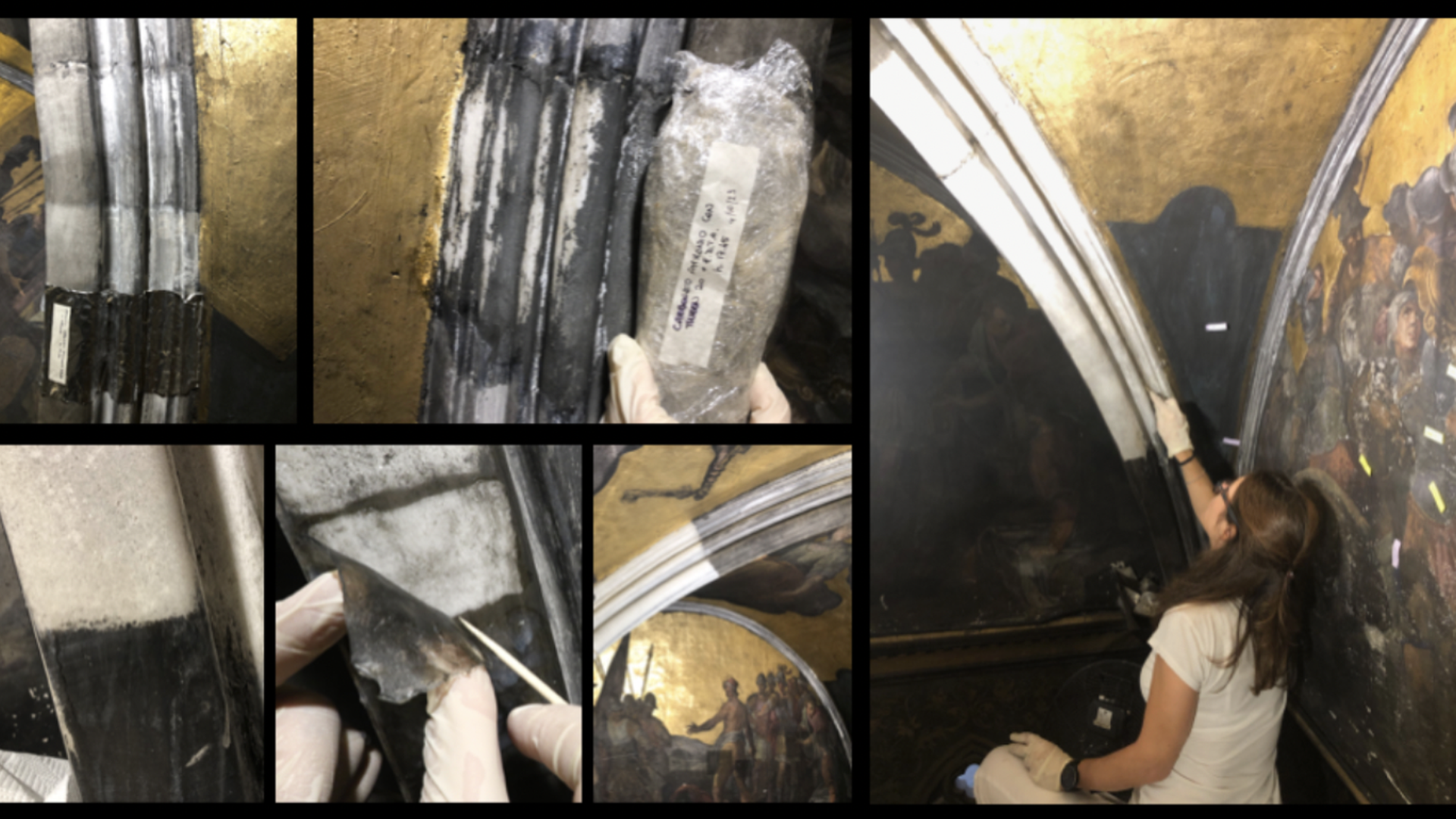
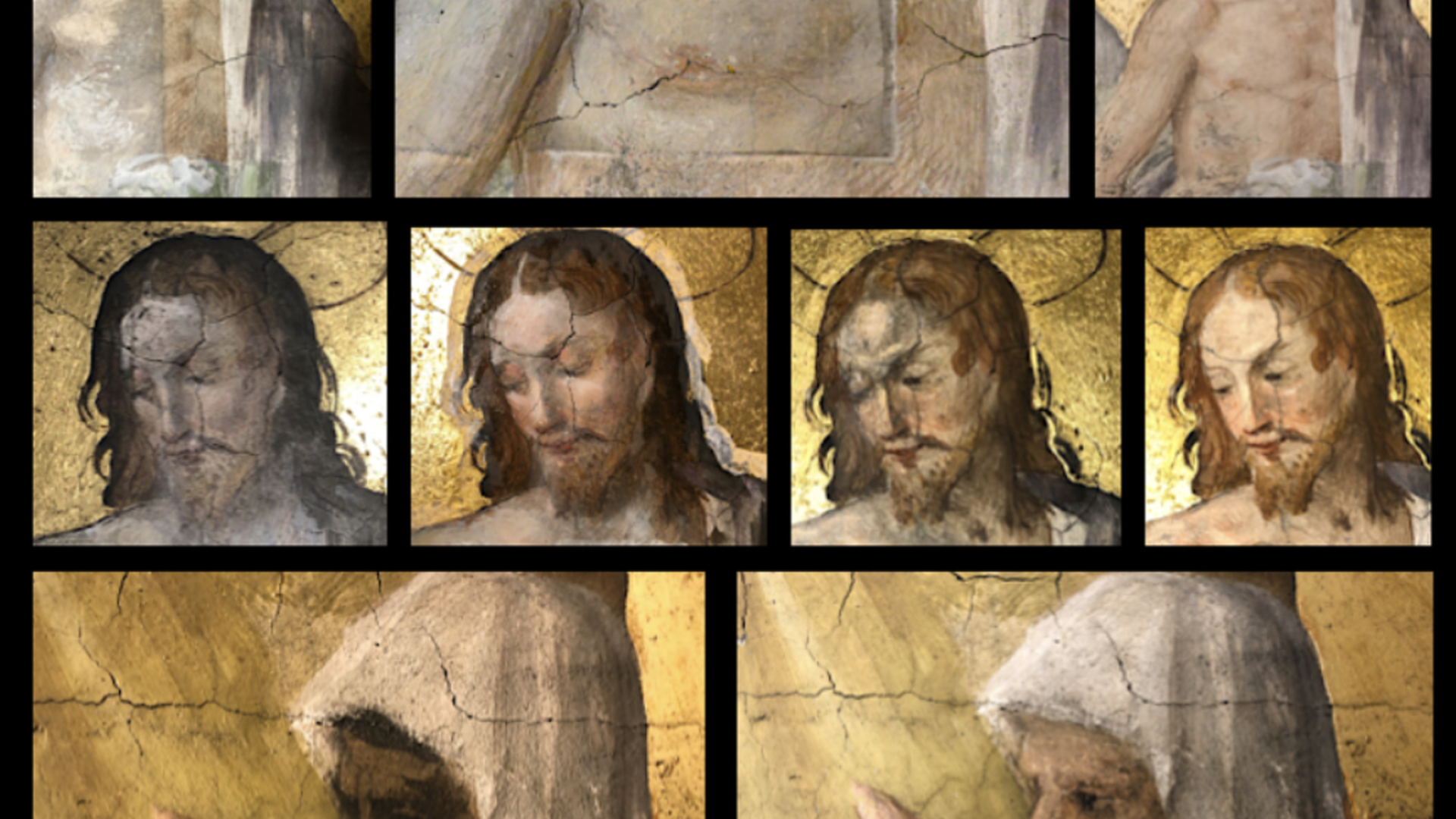
Although the lunettes have lost, in the lower part of the scenes, large portions of the pictorial film and the disintegrated surface of the preparation and plasterwork, the complex cleaning methodology developed has yielded results that are nothing short of unhoped-for, allowing the recovery of a critical text of evident Mannerist scope, of relevant pictorial quality and referable, perhaps, to two distinct masters: for the angels of the four scores of the cross vault and the respective lunettes with the stories of St. Paul and St. Peter.
The current restoration is being consciously performed thanks to an in-depth campaign of preliminary investigations (by the Scientific Research Laboratories of the Vatican Museums), which, combined with an initial visual inspection and percussive detection of the widespread plaster detachments, has allowed to assess the characteristics of the work, to analyze its degradation factors and, therefore, to develop an adequate operative methodology.
The surfaces appeared visibly compromised in their legibility, being almost entirely obscured by thick deposits of a more or less coherent carbonaceous nature.
Restorers proceeded cleaning the stone elements and the wall paintings.

Ciborium Monument of St. John Lateran
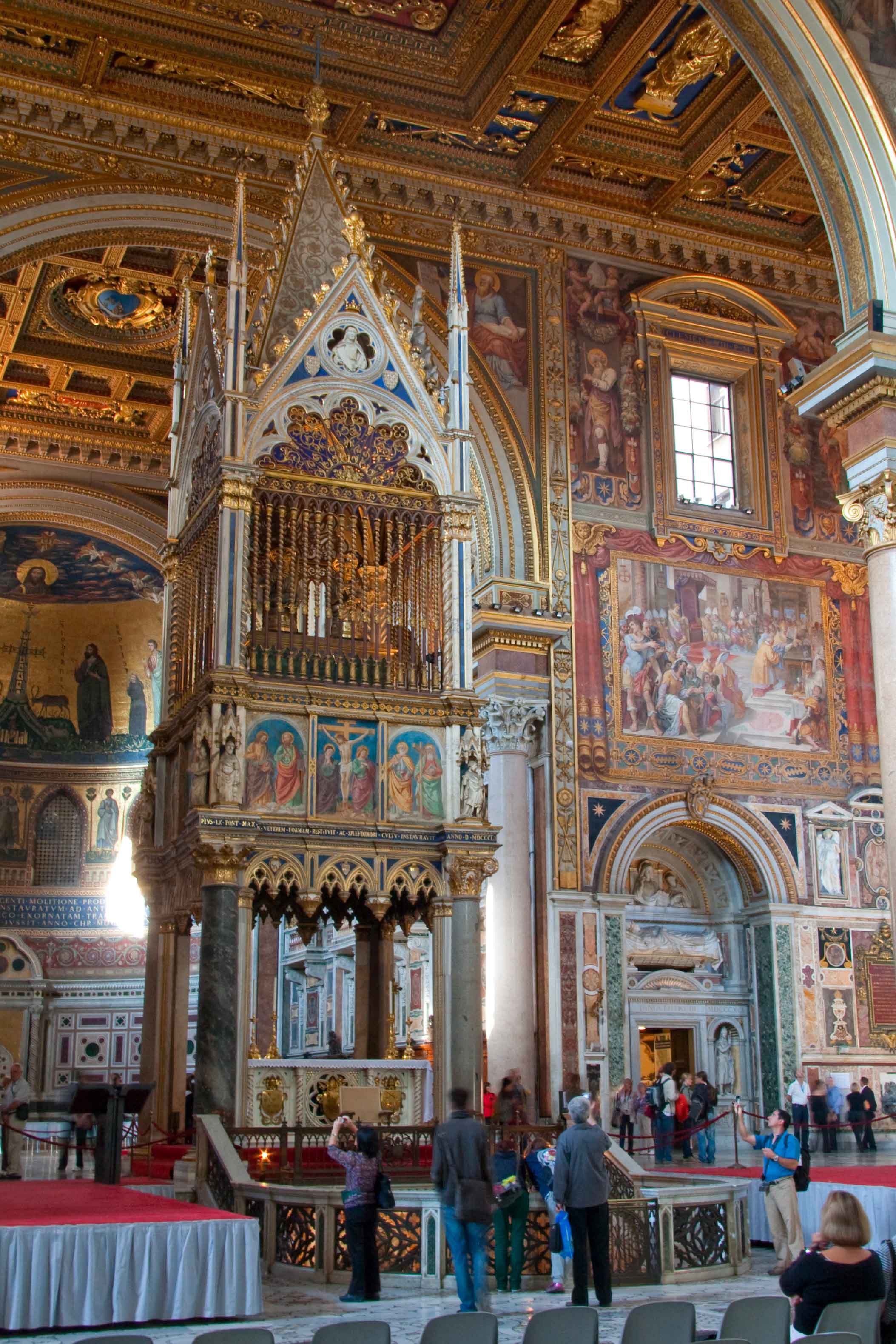
Details
Adopted by: The Illinois Chapter
Inventory: n/a
Artist: Unknown
Date: 14th century
Classification: Ciborium
Materials: Frescoes, Paint on walls
Dimensions: 32 square meters
Offsite: St. John Lateran
Department: XV-XVI Century Art
Laboratory: Painting & Wood
Wishbook year: 2023
Description
HIGH PRIORITY PROJECT
The ciborium was built at the time of Pope Urban V (1362-1370) as part of the redevelopment plan of the papal basilica that he promoted. It is the work of the Sienese architect Giovanni di Stefano. The monument was intended to display the heads of Saints Peter and Paul, discovered by the pope himself in the Sancta Sanctorum. In addition to the frescoes in the panels above the four columns, dating from the years of Pope Alexander VI and from the school of Antoniazzo Romano, the interior of the ciborium contains valuable paintings by the Florentine Giovanni Balducci, datable to the late 1500s, depicting in the lunettes the Delivery of the Keys, the Conversion of Saul, the Crucifixion of St. Peter and the Beheading of St. Paul, and in the vault hovering Angels with the symbols of Saints Peter and Paul.
TOTAL COST: € 70.371,90 ($ 68,781.50)
Restoration Procedures
-
Consolidation of detached plasters
-
Cleaning: removal of the thick black layer and various repaintings
-
Filling of gaps
-
Pictorial reintegration
Media

Ciborium of St. John lateran
Restorations Update: Ciborium Monument of St. John Lateran - Restoration Update
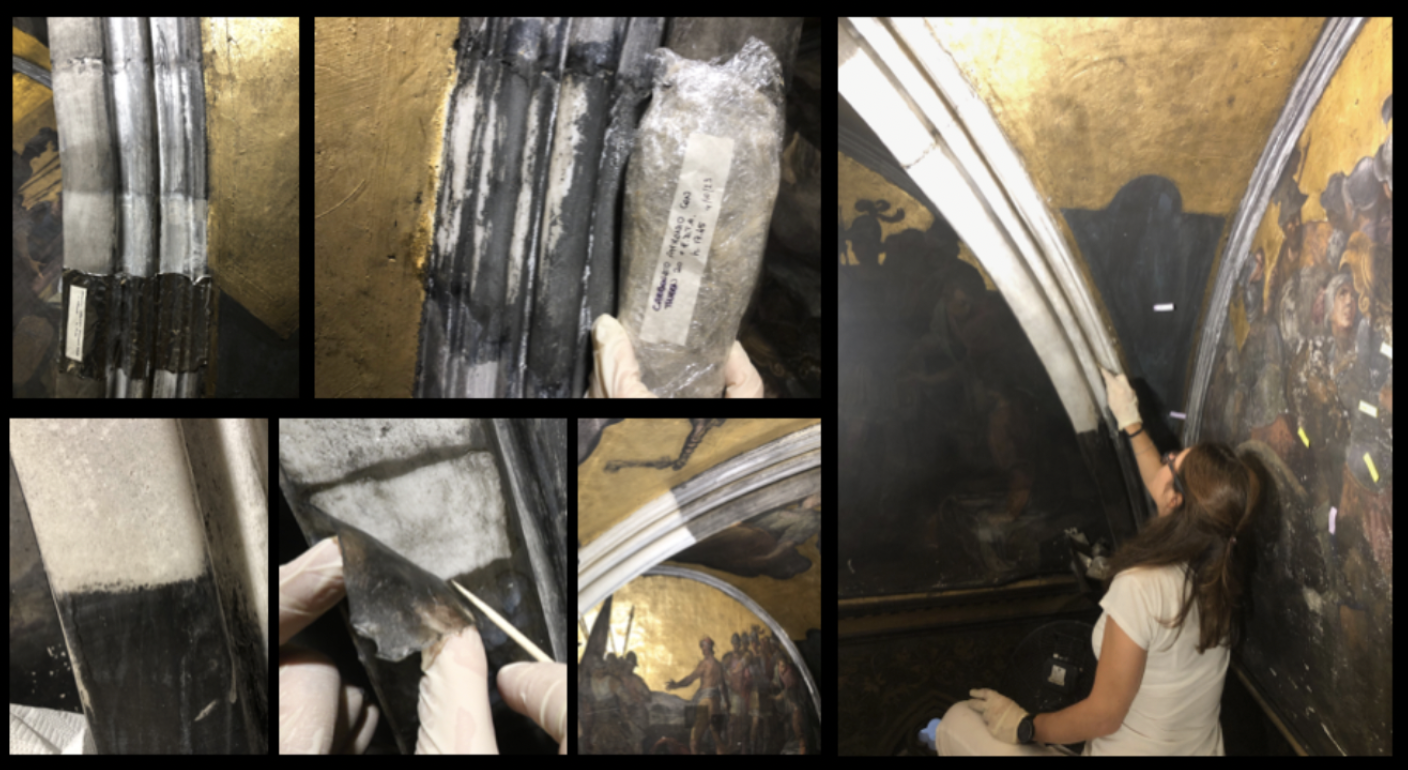
Although the lunettes have lost, in the lower part of the scenes, large portions of the pictorial film and the disintegrated surface of the preparation and plasterwork, the complex cleaning methodology developed has yielded results that are nothing short of unhoped-for, allowing the recovery of a critical text of evident Mannerist scope, of relevant pictorial quality and referable, perhaps, to two distinct masters: for the angels of the four scores of the cross vault and the respective lunettes with the stories of St. Paul and St. Peter.
The current restoration is being consciously performed thanks to an in-depth campaign of preliminary investigations (by the Scientific Research Laboratories of the Vatican Museums), which, combined with an initial visual inspection and percussive detection of the widespread plaster detachments, has allowed to assess the characteristics of the work, to analyze its degradation factors and, therefore, to develop an adequate operative methodology.
The surfaces appeared visibly compromised in their legibility, being almost entirely obscured by thick deposits of a more or less coherent carbonaceous nature.
Restorers proceeded cleaning the stone elements and the wall paintings.
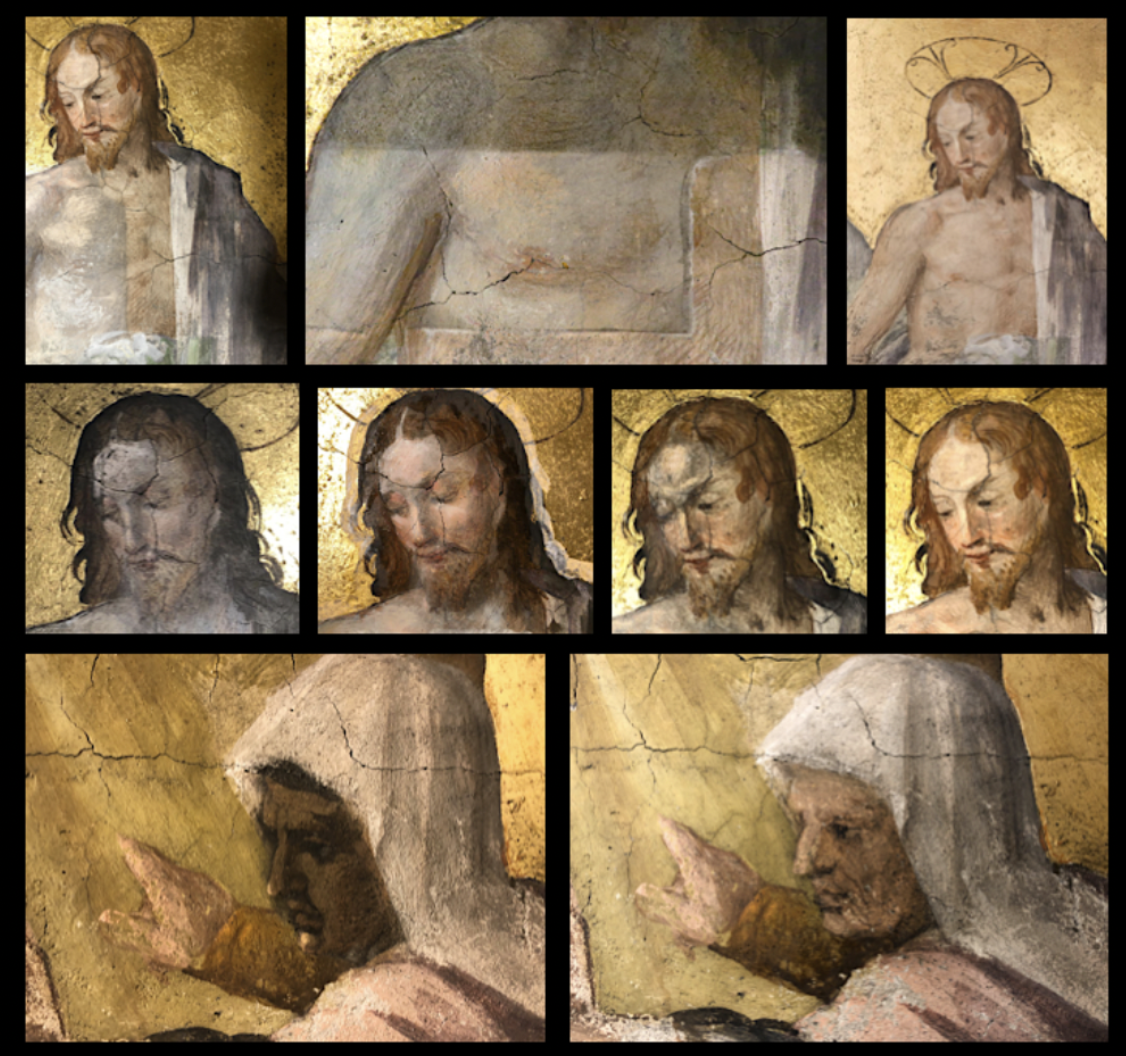

© 2025 Patrons of the Arts
in the Vatican Museums
Vatican Museums V-00120,
Vatican City State (Europe)
+39 0669864499
